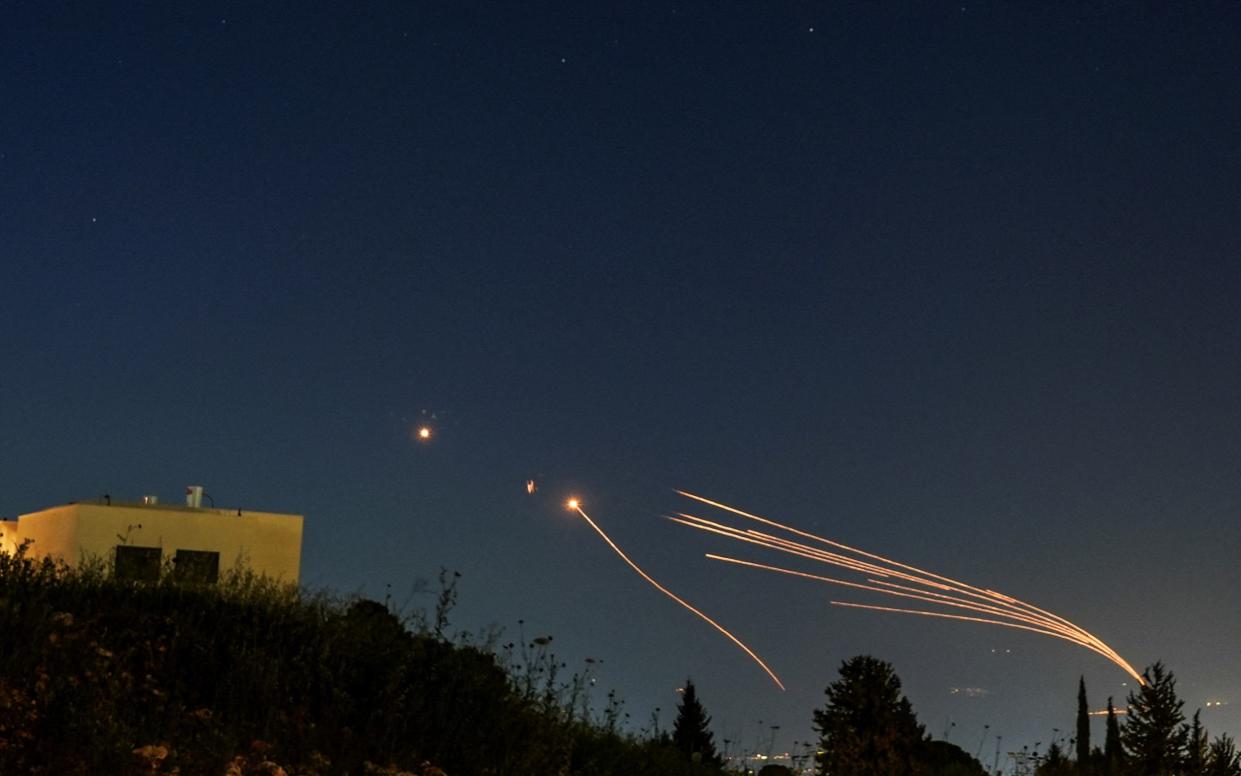Britain has neglected its air defences. They are no longer enough to keep us safe

Iran’s attack on Israel has highlighted an aspect of warfare that many in the West have either long forgotten or ignored, despite the now regular scenes of devastation in Ukraine. Air defence, or rather the lack of it, was the very reason for the formation of the first independent air force, after German bombers ran amok in southern England in June 1917.
The West has not suffered a conventional air attack on home soil since 1945, and, while we continue to witness it elsewhere, we have largely dismissed it as a major risk to the nation. Of course, we have deployed our armed forces on overseas operations where air or missile attack has been a real threat, but those risks have been accepted as part of the military operation and mitigated mostly through overwhelming air superiority or the protection of a coalition “umbrella”, largely thanks to the US.
The truth today is that we are far less likely to see enemy bombers in our skies or over our cities because the proliferation and increased range of drones, tactical ballistic missiles and ground or air launched cruise missiles are such that they can be launched in large numbers from thousands of miles away, and certainly from within an attackers’ national borders.
As an example, the Russian strategic bombers the RAF often intercept and shadow over the North Sea could in reality fire their air launched cruise missiles at the UK from within Russia. In which case, we would have to resort to shooting the fired “arrows”, as is the case in Israel and Ukraine, unless of course we are prepared to escalate the conflict by going after the “archer”, wherever they may be. But we have telegraphed our reticence to escalate conflicts through limiting Ukraine’s ability to strike beyond its borders, where longer range weapons or aircraft are either withheld, delayed or come with caveats. We are imploring Israel to do the same to try and limit that conflict, yet our own doctrine tells us to strike Houthi firing points within Yemen.
We have some deep thinking to do, because shooting arrows is a costly business and can only be sustained if you have invested in the stockpiles and industrial capacity to meet it – and the situation in Ukraine suggests we have not. Going after the source also carries risks, but not resourcing the former and avoiding the latter shows a weakness that can and is being exploited, meanwhile, the sustainment of our air defences will continue to be tested and stretched.
There is something existential about attacks on the homeland, and whilst we see ample evidence that it doesn’t necessarily break the will of a nation, it is costly in both lives and livelihoods, and has a huge impact on the political decision space and limits strategic choice. Last weekend, we got a taste of the scale and scope of the types of weapons that can now be launched over long distances, and we have seen the horrors of their destructive force in Ukraine every day for the last 2 years. Yet we still see it as something otherworldly, and have yet to wake up to our vulnerability, or truly imagine what it means to be under attack in your own homeland.
We have become complacent at best, and reckless at worst. We draw some comfort in our ability to shoot these deadly “arrows” out of the sky, either through acting as a screen for Israel, or a provider of weapons in both Ukraine and Israel, but even in these cases we have a limited capacity to sustain operations, let alone consider what we might do for our own salvation, if and when the time comes.
The stark truth is that the UK, like many other Western nations, doesn’t have anything close to Israel’s Iron Dome or even anything resembling the defences of an over-stretched Ukraine. And that in no way criticises the men and women we have on watch 24/7, 365 days a year; they remain some of the very best, as does their equipment, as demonstrated last weekend. But over the years, we have shrink-wrapped our defences around very specific, limited and bounded tasks. We have designed and resourced a force that can professionally “police” an Olympics or deal with a 9/11 scenario, and even the odd Russian itinerant aircraft, but not a concerted, conventional attack.
I am not suggesting for one minute that we face imminent annihilation from an enemy onslaught, but the fact that we are vulnerable to one today makes our deterrent effect so much weaker. For years, we have had the luxury of air superiority and the geographical advantage that our island’s location confers, but the enemy has spent those years building a stockpile of weapons that can reach far beyond our borders.
We possess a nuclear deterrent to primarily deter the nuclear threats of others, we should not rely on it to deter conventional threats that remain below that threshold. We have some simple choices to make: deter or defeat the archer, or be ready to shoot down an awful lot of arrows.
Greg Bagwell CB CBE is a retired Air Marshal and combat pilot. He was the UK’s Air Commander for four years and is current President of the Air and Space Power Association


